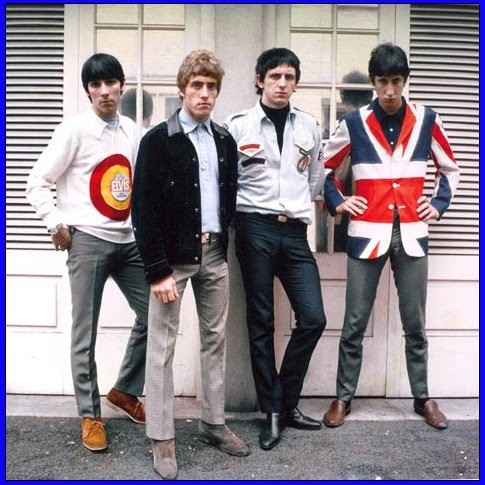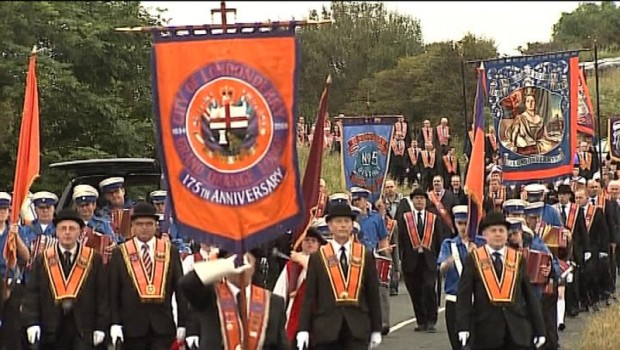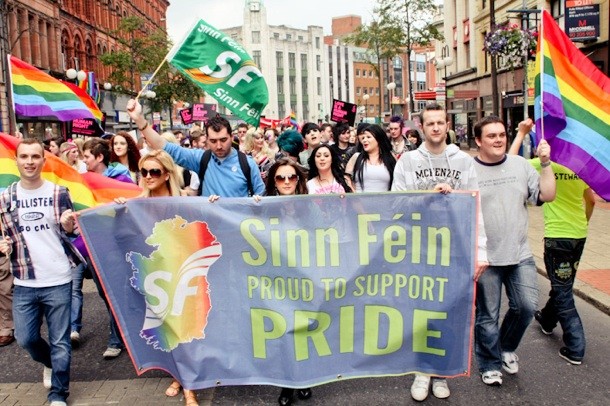4 March 2018
So just what does Britishness mean to unionists?

"I believe it is high time that there is a debate within the traditional unionist community about what being British actually means. The world has moved on, indeed Britain has moved on from its colonial days of Empire. - Conor Keenan
I love The Who. I really do. Quadrophenia is both one of my favourite albums and films. There’s something about the mod culture of England in the 1960s. It was rebellious. New. A kick at the establishment.
I was too young to be a real mod.
I had a parka jacket when I was around 11. But we were really only let-on mods. We were watching from afar, in distance and years.
I also loved ska. The Specials, Madness, Bad Manners, The Beat. I still do. There’s nothing like Concrete Jungle or Rankin Full Stop to put you in good form.
I had ‘Complete Madness’ and ‘The Best of The Beat’ played out on my record player. I think I might have been an ‘Ant’ for about a week as well.
We seemed to adopt all the British youth cultures of the late ‘70s and ‘80s. We happily moonstomped away in our DMs with yellow laces to Baggy Trousers or Lip Up Fatty just like any kid in Manchester or London. We gladly accepted the imported invitation to be ourselves while following the gang.
The disco in the McAirt Centre in the Short Strand, with the awkward teenagers jumping about thinking they were Suggs or Paul Weller, could’ve been in any working-class community in England.
I enjoy soccer. I recently brought two of my sons to their first Man City game. We had a ball! The atmosphere was electric and Aguero got a hat trick. The class of skill a far cry from what we usually watch on a Saturday at Solitude.
Conchúr and Óisín are bilingual. Speaking Irish comes as natural as speaking English. I’m jealous, because they speak better Gaeilge than me, but I'm immensely proud, all at the same time.
They love Man City. But they just as enthusiastically cheered on their county Down when they reached the Ulster final last year.
From St Tiernach’s Park, Clones, to Etihad Stadium, Manchester, for them it’s like passing through a door wearing the same clothes.
So, why am I writing all this? Why the need to put this to paper?
I’ve been thinking long and hard recently about British culture and why I/we are accused of attempting to take it away from people who claim to cherish it here in the north.
‘Cultural war’ is a modern day 'orange card' being played by unionist extremists. It reinforces communal division: fuels sectarianism. It does a massive disservice to those who cherish the Orange or Ulster Scots traditions: or who claim a British identity here.
Republican leaders have said many times they will act as guarantors of the Orange tradition and British and Irish unionist political identity in a new Ireland. But that's a message which does not get heard.
I am Irish. I carry my identity easily.
I don't feel the need to push it out there – and neither will my children.
The modern world is a global village. Irish cultural traditions are a natural part of that.
I was born into a republican family.
Injustice all around me made me an Irish republican activist.
Republicanism is an internationalist philosophy, borne of the American and French revolutions. My republican politics are internationalist. I am very comfortable with that.
British popular, especially working-class, culture played a part in influencing my development. Music, sport, youth identity all clearly imported from Britain helped shape me. I accepted them. Enjoyed them. Still do.
Doing so didn’t make me any less Irish, or make me British. I didn’t even recognise it as such. That's how it should be. Popular culture should be just that – popular: not contentious!
However, the unionist culture and British identity which I endured was shoved in my face. It was Orange parades, union jacks and “Fenian bastard!”. It was my unemployed father; my mother telling me not to say my brother's name ”up the road”; my hiding my shamrock while walking through town on St Patrick's Day.

My neighbourhood, my family and friends, were blockaded regularly by RUC and British soldiers to allow this expression of British culture to pass and mock us. British culture was about keeping me and my family in our place. Know who you are. This was their place and we would only ever be tolerated.
The disco in the McAirt centre differed hugely from a disco in Manchester or Birmingham.
We were Irish.
I was living in place which rejected me, and my parents and grandparents. Even their own grandparents!
There was a war going on around us. Those who claimed Britishness were at war with us. On our streets. Outside our homes. In uniforms and not. They marched past our houses in sashes, gave us the fingers and spat. They held up nooses when we went to watch Cliftonville play Glentoran at the Oval.
My experience of Britishness is a far cry from the great examples of Britishness espoused and lauded by those who explain that being British is about the welfare state, the NHS and multiculturalism.
I don’t recognise any notion of multiculturalism in ‘Ulster Britishness’. My Irish identity certainly has no space there. That version of Britishness cannot even bring itself to legislate for the Irish language unlike, ironically, those in Britain who have done so for the Scots Gaelic and Welsh languages. Oh, and Marriage Equality? That’s another British example which doesn’t fit. A la carte Brits how are ye!

I think the NHS, the welfare state and multiculturalism are fantastic. I want to see them flourish in a new Ireland. I want to take those great examples of Britishness and shape them, make them even better. I especially want to see a version of the NHS on this island. One that is encouraged to treat our old and sick with respect and dignity and not one which is starved of funding and resources. Multiculturalism is here and thriving.
I believe it is high time that there is a debate within the traditional unionist community about what being British actually means. The world has moved on, indeed Britain has moved on from its colonial days of Empire.
Don’t be left behind any longer.
We sit waiting in our parka jackets and DMs with our Irish arms open.
Follow us on Facebook
An Phoblacht on Twitter
Uncomfortable Conversations

An initiative for dialogue
for reconciliation
— — — — — — —
Contributions from key figures in the churches, academia and wider civic society as well as senior republican figures





